Why tummy time is important

Tummy time happens when your baby lies on their tummy with weight on their forearms. Tummy time builds head, neck and upper body strength. Your baby should do it often each day.
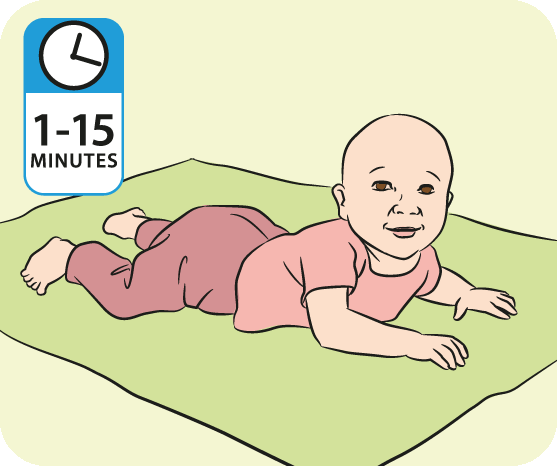
Start tummy time soon after birth. In the first few weeks, try tummy time for 1-2 minutes. Build up to 10-15 minutes several times a day.
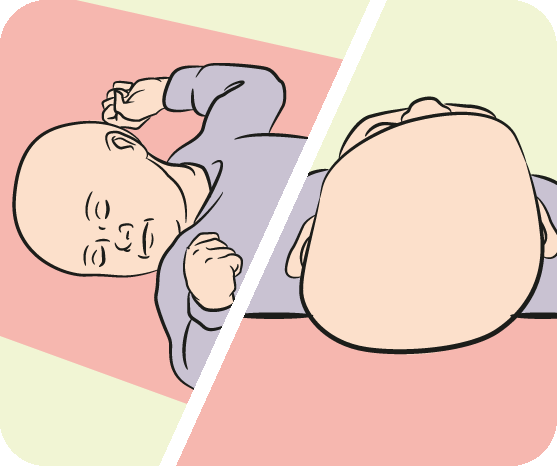
Back to sleep, tummy to play. While asleep, baby spends a lot of time on their back with their head in one position. This can cause flat spots on the back of their head. Tummy time helps to prevent this.
How to do tummy time

Place safe objects and toys close to your baby. Move them from side to side in front of your baby’s face. This encourages your baby to move, lift and turn their head.
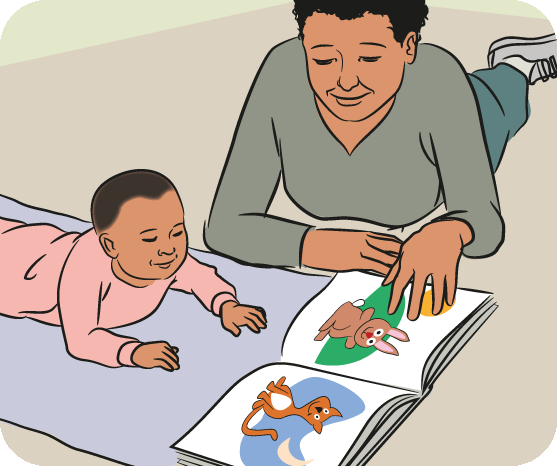
Get down on the floor next to or in front of your baby. Turn pages in picture books or magazines. This develops your baby’s eye strength and keeps them interested.

Put a non-breakable mirror next to your baby so they can see their reflection. Try tummy time in different places, like outdoors on a blanket.
How to make tummy time interesting, fun and safe
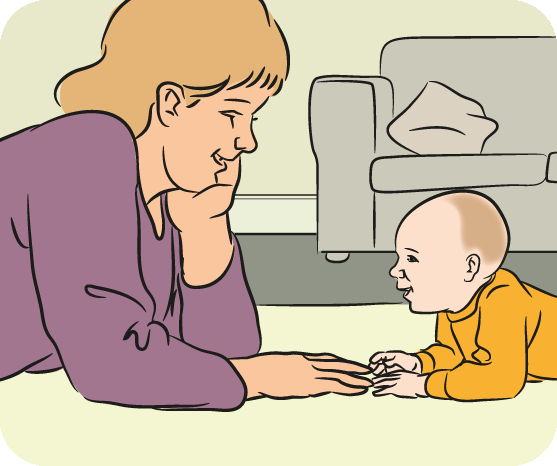
Let your baby know you’re there by talking and singing, stroking their back or tickling their hands.
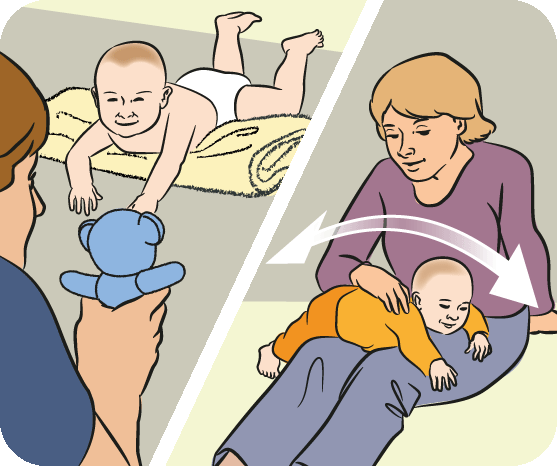
If your baby doesn’t like tummy time on the floor, try tummy time on a rolled-up towel, your lap or your chest.
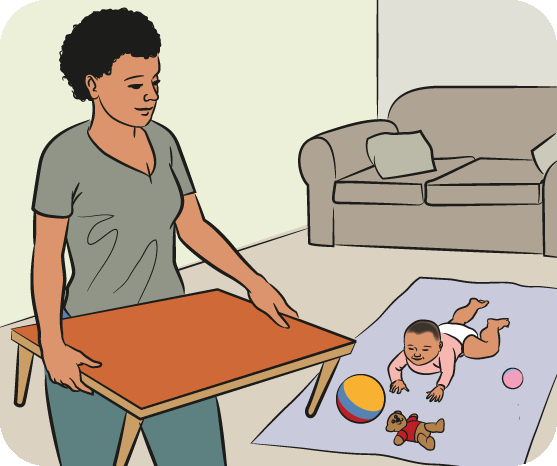
Supervise baby during tummy time. As your baby gets stronger and starts moving more, clear away dangerous things.
Languages other than English
- Arabic (PDF: 390kb)
- Dari (PDF: 386kb)
- Dinka (PDF: 406kb)
- Hakha Chin (PDF: 288kb)
- Karen (PDF: 517kb)
- Persian (PDF: 386kb)
- Simplified Chinese (PDF: 398kb)
- Swahili (PDF: 342kb)
- Tamil (PDF: 515kb)
- Vietnamese (PDF: 345kb)